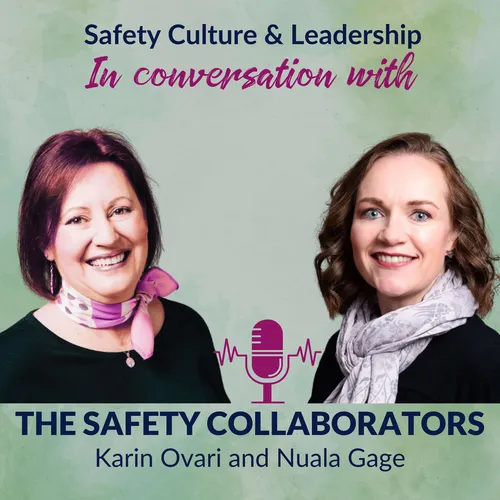E007_What is conversational waste and what can you do about it?
- Author
- Safety Collaborations
- Published
- Mon 22 Aug 2022
- Episode Link
- None
What is Conversational waste?
It is one of the most significant hidden costs to organisations and high performance. Conversational waste occurs when our conversations fail to generate the desired action or result, or when they are not required to achieve the desired outcome.
So let's run through some examples of conversational waste.
- Repeating ourselves
- Making assumptions that people understood our request or our instruction
- Jumping into the task or exercise without clarifying expectations or roles
- Having to redo, repeat, rework, and modify
- People often say yes when they don't understand, simply because they fear asking questions.
One or all of these can lead to conversational waste, and we are sure you can come up with many more examples from your own experience.
People often overlook the fact that taking the time for good conversations saves time, reduces risk, and increases efficiency.
People often ask us why we wasted our time taking those two hours to have a conversation when nothing went wrong. Our response… that's why nothing went wrong. And that's why everything went well, because by taking the two hours, you probably saved five, if not more, and ensured that people were doing it safely and efficiently.
Thinking about our work environments, what are they? They are created by humans and operated by humans. And therefore, millions of conversations happen all day long, so let’s have conversations that count and reduce conversational waste.
Throughout this episode, we discuss what it takes to reduce conversational waste.
Thanks for listening!
____________________________________
This episode was produced under Safety Collaborations Limited and now continues as part of Karin Ovari Limited. While we are not currently releasing new episodes, the entire library remains active, and the topics covered are just as relevant today as when they were first recorded.
To learn more about my current work in leadership and communication, visit karinovari.com and the leadership community, The Supervisors Hub.
Connect with us on LinkedIn: Karin Ovari, Nuala Gage,
If you enjoyed this episode, please help us spread the word and leave a review on your preferred podcast player.
Stay Safe, Stay Well
The Safety Collaborators
